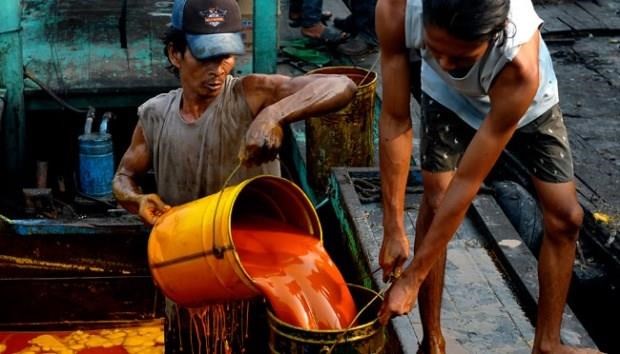Indonesia to sue EU over palm oil industry concerns
The Indonesian government is preparing for legal action at the World Trade Organization (WTO) to challenge the EU over its Renewable Energy Directive II (RED II) and Delegated Regulation (DR).
 |
| Workers are unloading crude palm oil at a port in Cilincing, Jakarta (Source: tempo.co) |
According to the official local news agency Antara, the lawsuit has been rolled out over concerns that the regulation will directly affect the country’s palm oil industry.
The Indonesian government must prepare to face RED II, as the rule will have a negative impact on the local palm oil industry, said Sondang Anggraini, head of the Trade Advocacy Bureau under the Ministry of Trade, at a conference in Bali.
It is important for Indonesia to explore its preparation and legal position in facing the implementation phase of the RED II, the official added.
Issued in 2018, RED II has had some negative impacts on the Indonesian palm oil industry. In March 2019, the EU Commission issued a regulation linking biofuels to Indirect Land Use Change (ILUC).
According to the document, ILUC can occur when pasture or agricultural land, earlier destined for food and feed markets, is diverted to biofuel production, thereby resulting in a decrease in food areas and triggering the conversion of forests or land that lead to increased emissions.
Some of RED II will be applied from January 1, 2021. All EU members are expected to have applied the directive at a domestic level by June 2021.
All RED II targets are expected to be achieved by 2030, which means no more biofuel originating from raw materials that pose a high risk of climate change and impact food availability.
In this case, Sondang highlighted the need for the Indonesian government to study two areas, which are the EU’s discriminatory policies on Indonesian palm oil compared to raw material products from other countries, such as soybeans, and to those from the EU.
(Source: VNA)








